He had induced these companies to build plants in Umm Al Amnah by bartering oil licences, favourable terms for oil sales, and supply guarantees.
To impress upon the captains of foreign industry that his country was not a tin-pot nation of bedouins and camel shit, he had spent vast sums of money in constructing, in Tunquit, as modern a city as money could buy. Anyone who ever dreamed of finding a city with its streets paved with gold would be unlikely to come closer to his dream than to visit Tunquit. Although not gold, the pavements are entirely marble and mosaics, and above them, rising high into the sky, is a forest of smoked glass and steel skyscrapers, with every building unique, and many displaying stunningly handsome architecture. The shorter ones are fifty to sixty storeys; the taller ones, eighty to ninety storeys. All, with few exceptions — which are the office buildings and the Royal Palace — have no occupants above the ground floor.
It had not occurred to Sheik Quozzohok that the bedouin nomads, for whom these dazzling palaces in the sky had been intended, could not get their camels into the elevators, or that their goats and sheep would not enjoy high-rise living. Many tried the apartment style of life; few stayed for more than a few days before returning to their hills and communities.
Quozzohok’s reaction to this was the same as his reaction to any act of infidelity to him, whether by an individual or by an entire community: a fit of rage followed by swift retaliation. The method of retaliation was always the same: he would cut off the water supply. For the communities that lived in the desert or in the mountains, the way he did this was to instruct his army to concrete in all the waterholes in the surrounding area; the effect for them, normally, was devastating. Not only would the occupants of the immediate vicinity face dying of thirst, but many communities all around, who would frequently depend on one waterhole in hundreds of miles of inhospitable and barren desert, would have either to uproot and move — completely — elsewhere, or die. Cutting off the water supply for the town dwellers was easier for Quozzohok — it required only the turning of a mains tap. Frequently, he caused the whole of the nation’s capital to be without water for days on end.
It was not surprising that Quozzohok’s popularity was on a steady wane. His intolerance towards his people and his open capitalism angered and upset many of his people, going against their Muslim grain. There was a rising tide of rebellion growing in the country, carrying inside it a bubble that was dangerously near to breaking point. Quozzohok spent most of his days closeted in the palace, working out new ways to woo major industry to Umm Al Amnah and playing with his massive assortment of gadgets that were his passion. He was an old man, a seventeenth generation ruler, who, unlike most of his predecessors, did not like the desert or the heat. The Royal Palace is a ninety-seven storey building, constructed from smoked glass and bronze-coated steel, rising from the centre of Tunquit like a massive altar. From his penthouse study, he could, on any one of the three hundred and thirty eight clear days of the year, survey all the corners of his land; but he rarely bothered to have any of the closed shutters over the windows raised.
If he had looked out or, better still, actually gone out, he might have picked up a few of the warning signs that his son, Prince Abr Qu’Ih Missh, spoke about at dinner almost every night. But he stayed inside, eyes firmly entrenched in the tomes of John Kenneth Galbraith and other financial architects of the major industrial nations of the world, dreaming of a gross national product which would leave the Japanese wringing their calculators in envy, and ordering the filling-in of still more waterholes for his ever-diminishing population.
Prince Missh and his three blonde ladies left the Quommah Beach Club at five o’clock, and walked to the palm-shaded car park where he had left his gleaming white replica pre-war Mercedes.
As they reached the car, two of the girls screamed in horror, and Missh froze: the tyres of the car had been slashed to ribbons, and every inch of the paintwork, and the leather interior, was smeared in excrement.
For some minutes, Missh did not move; then his eyes began to moisten. He walked silently around the car while the girls stood watching him, fearful. Then he swivelled on his Moreschi heels and walked swiftly back to the Club. He dialled a number at the reception desk and ordered a car from the secret police. As he waited for it to arrive, he stood still in silence, deep in thought. The day was not long now, he knew; something had to be done, and done fast.
Throughout the ride in the armour-plated Lincoln, back to the palace, and throughout the nightly ritual of dinner with his father, he remained in almost complete silence. After dinner he went to his quarters, occupying the sixtieth to seventy-fifth floors of the Palace, and sat awake, on his own, throughout the long night. There was revolution in the air, he knew; an idiot could have sensed it. He thought back to 1979, to Iran — the evening of that year when he had sat with his father and with the Shah of Iran, one of his father’s greatest friends, and the man in the world that his father had always said he admired the most. He remembered the Shah talking about unrest, and his father poo-pooing it as nonsense and telling the Shah not to be concerned. And yet his father had learned nothing from all this. He was right, thought Missh, the man who said, ‘The lesson of history is that man does not learn the lesson of history.’
Iran was many hundreds of times the size of his own country but the policies were much the same, the people much the same, and now the signs were much the same. He needed help, a lot of help, and quickly — and he did not know where to turn. The Umm Al Amnah army was strong, but small; and although, because of the size of their pay packets, most of the soldiers were undoubtedly loyal to his family, he was equally certain that when the crunch came, there were many who would not turn their guns onto their own people, just as he knew there were many who disobeyed their instructions to fill in waterholes. They needed help from the West, but he knew the West wouldn’t help. When his father had declared Independence and broken away from the Emirates, he had upset just about the entire Western World.
At that time, he had drawn help from the Libyans and the Russians, a fact which more than anything had prompted the pro-West United Arab Emirates to disown Amnah. Ever since then, relationships with the UAE Government had been strained at the best of times, with frequent border skirmishes, on Quozzohoks’s instructions, at the slightest hint of territorial infringement. The West would now not dare lift one finger to help them for fear of upsetting the UAE, with whom the West now had major economic ties.
It had taken Amnah eight years to throw off the claws of Libya and Russia. Neither country was pleased with the way it had been treated by Quozzohok after helping Amnah to gain Independence, and it was unlikely either would be willing to help again, on anything other than complete takeover terms.
He wished he could discuss the situation rationally with his father, but he knew his father would not listen. His father would not believe that his people, whom his family had led for eleven hundred years, could even contemplate rising up against him. If he told his father about the incident with his Mercedes, it would only lead to even more water-holes being filled in, and create more misery and greater resentment still.
At dawn, Missh came to a decision: he would have to bring in a private army, one whose loyalties were to money and money only, one which would not be influenced by political or religious views. He needed someone thoroughly experienced in the field of mercenaries to advise him on the numbers and types of mercenaries he needed, and to set the whole thing up for him. There was one man, he knew, who might be able to help. He was the man through whom they had bought most of their military equipment during the last eight years — a man who was able to produce gunboats, tanks, aeroplanes, with the ease of a village shop delivering a weekend grocery order. He lifted the telephone receiver and started dialling an Athens telephone number. The phone rang three times, and then a voice answered.
Читать дальше
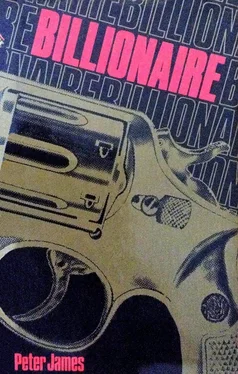
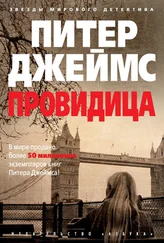
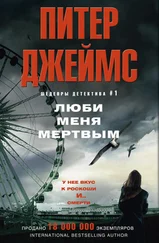
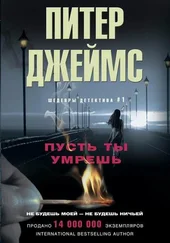

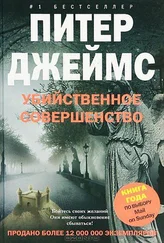

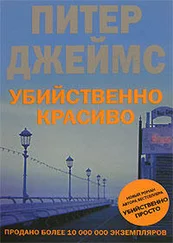
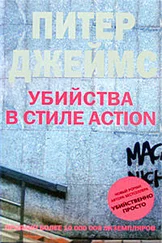

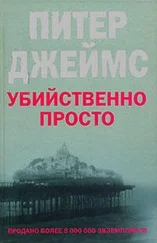
![Питер Джеймс - Искушение [litres]](/books/423638/piter-dzhejms-iskushenie-litres-thumb.webp)
![Питер Джеймс - Wish You Were Dead [story]](/books/430350/piter-dzhejms-wish-you-were-dead-story-thumb.webp)